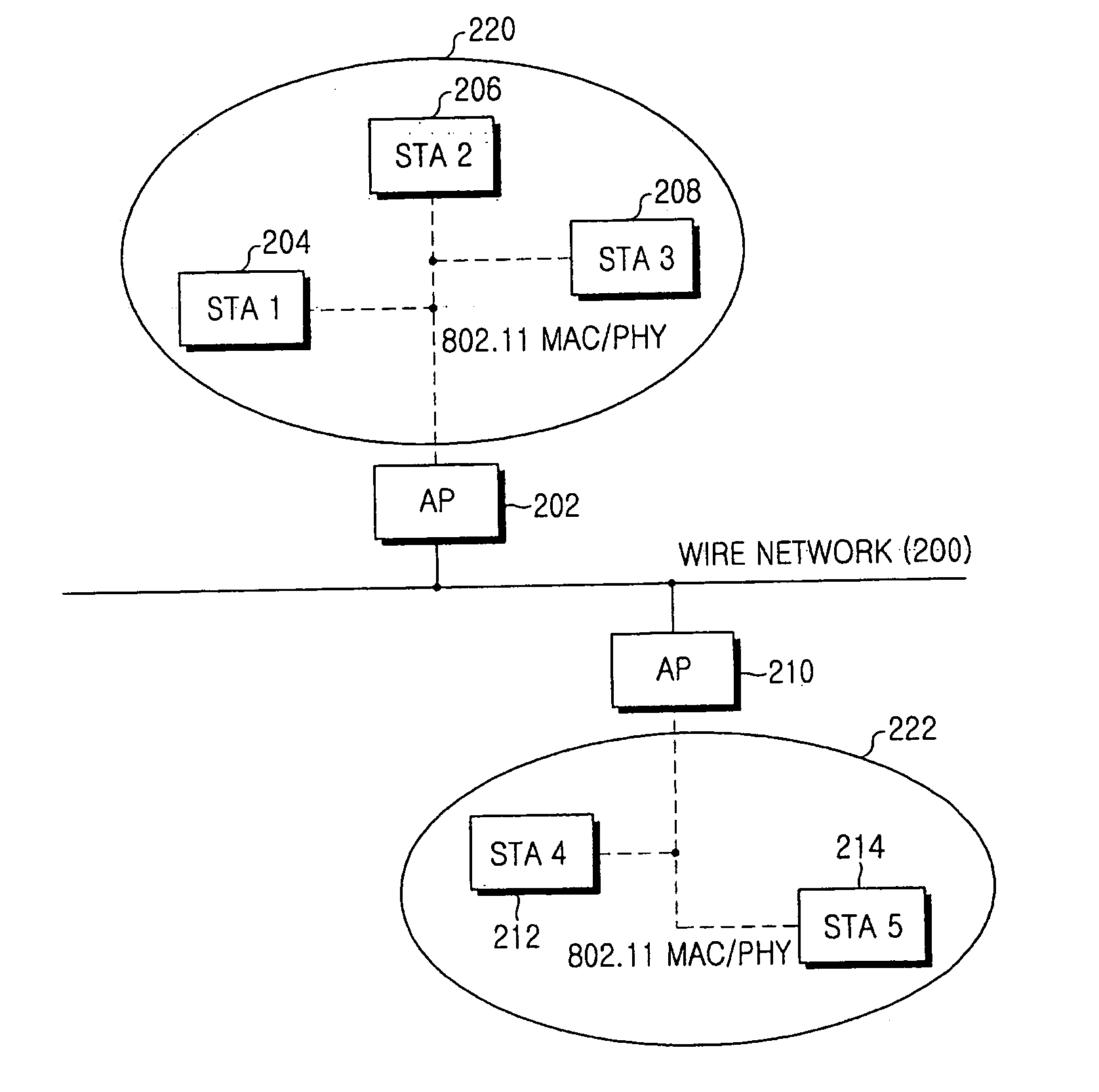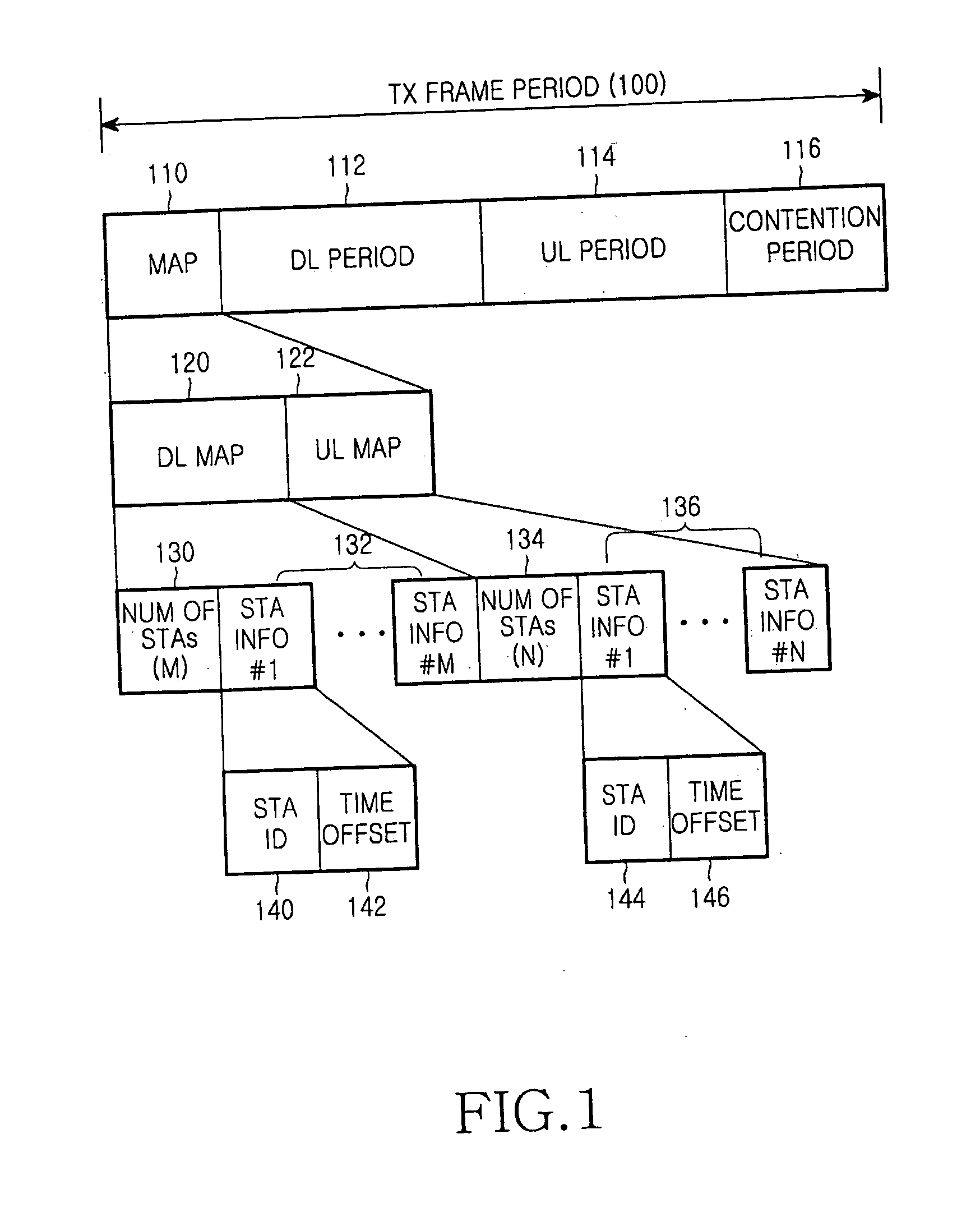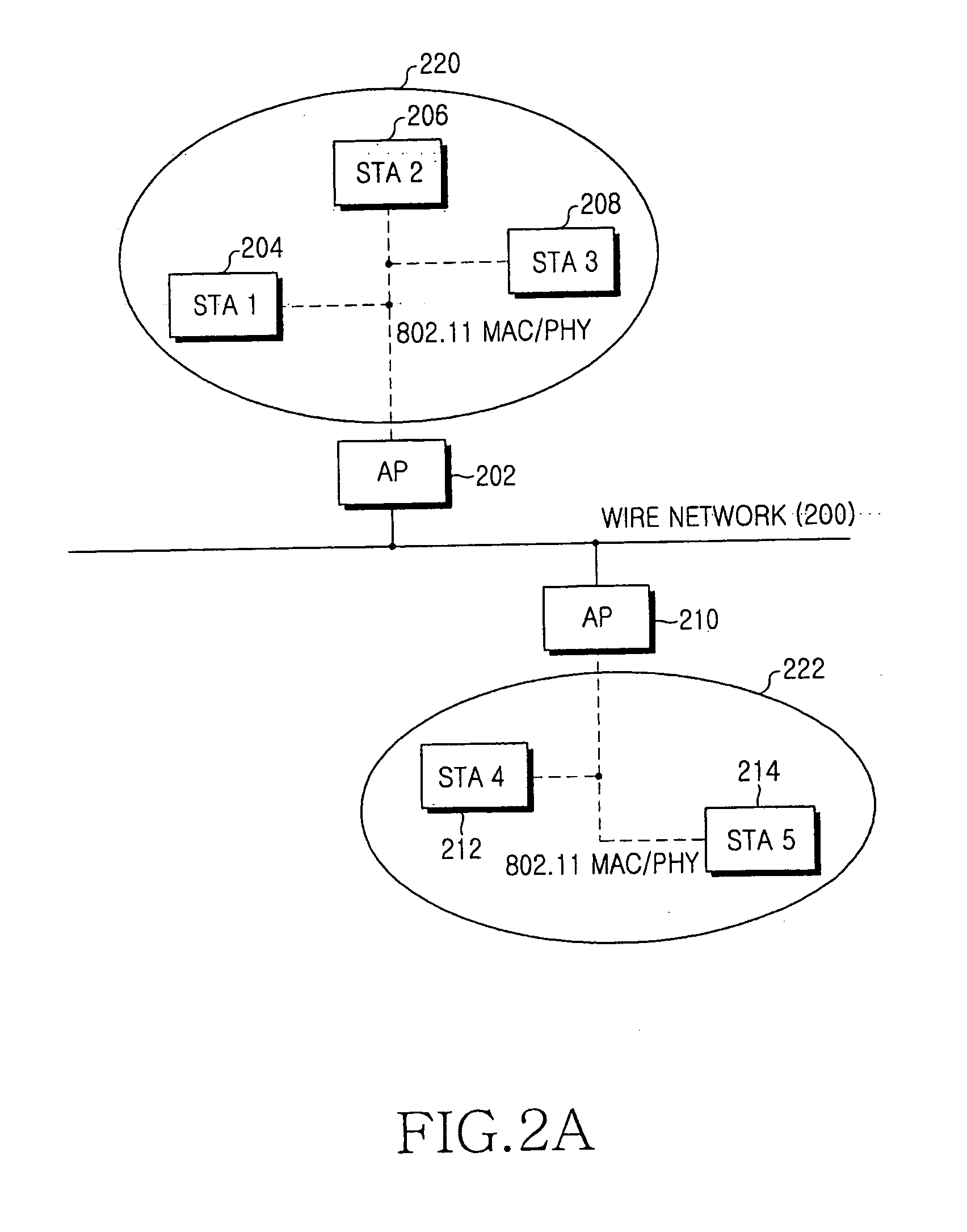Method for allocating transmission period in a wireless communication system
a wireless communication and transmission period technology, applied in power management, high-level techniques, assess restrictions, etc., can solve the problems of wasting wireless resources, reducing data throughput performance, and resource not being reused by other stas, so as to minimize the waste of sta power and reduce data throughput
- Summary
- Abstract
- Description
- Claims
- Application Information
AI Technical Summary
Benefits of technology
Problems solved by technology
Method used
Image
Examples
Embodiment Construction
[0025] Preferred embodiments of the present invention will now be described in detail with reference to the annexed drawings. In the following description, a detailed description of known functions and configurations incorporated herein has been omitted for clarity and conciseness.
[0026] A main feature of the present invention, related to allocation of transmission periods in a wireless network system, is to provide more than one MAP (mapping) frames to indicate a period allocated by an access point (AP) to each station (STA) in a transmission frame period. The allocated period starts immediately after the MAP frame is transmitted, and in the transmission frame period, the MAP frames other than the first MAP frame are referred to as “subsequent MAPs” (sub MAPs). In particular, the wireless communication system according to the present invention, after allocating a minimum period to an STA using a MAP frame, allocates accurate resources to the STA using a sub MAP frame in the same t...
PUM
 Login to View More
Login to View More Abstract
Description
Claims
Application Information
 Login to View More
Login to View More - R&D
- Intellectual Property
- Life Sciences
- Materials
- Tech Scout
- Unparalleled Data Quality
- Higher Quality Content
- 60% Fewer Hallucinations
Browse by: Latest US Patents, China's latest patents, Technical Efficacy Thesaurus, Application Domain, Technology Topic, Popular Technical Reports.
© 2025 PatSnap. All rights reserved.Legal|Privacy policy|Modern Slavery Act Transparency Statement|Sitemap|About US| Contact US: help@patsnap.com



